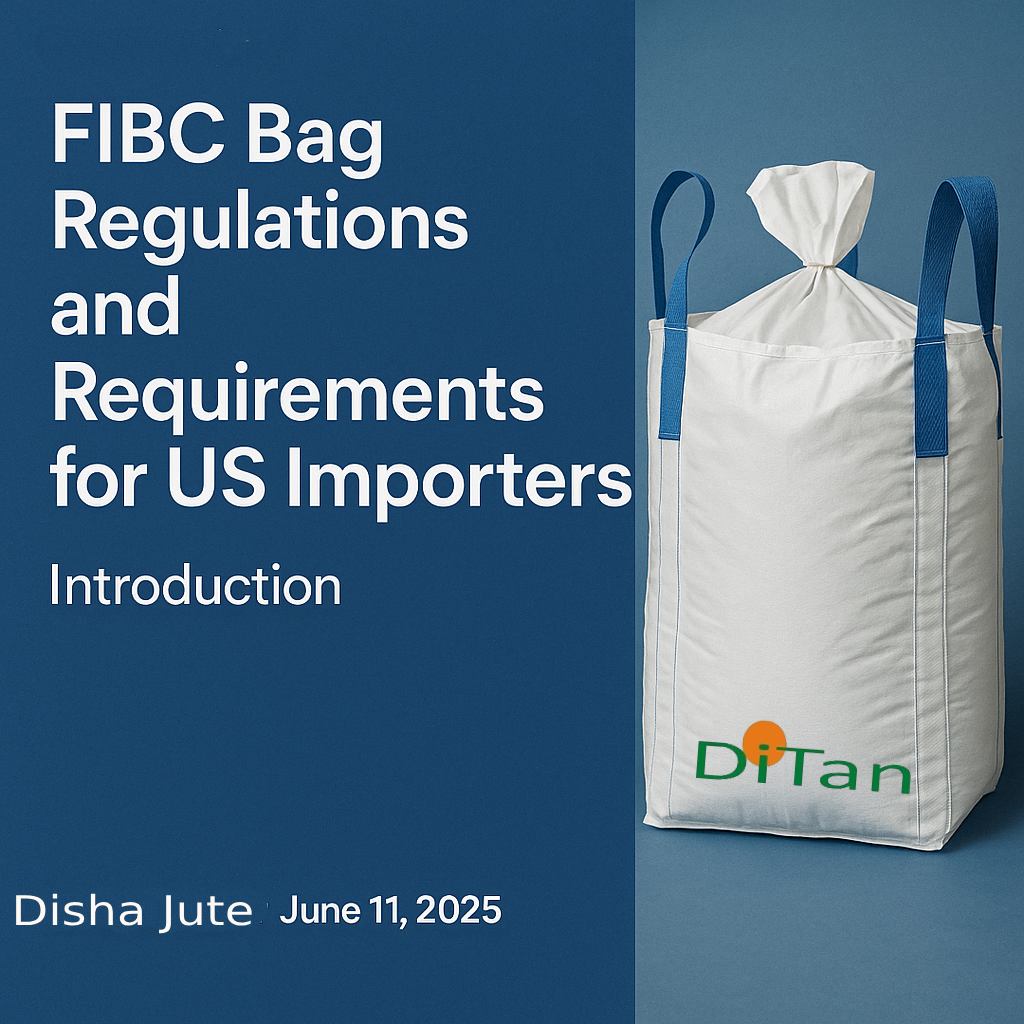Introduction
Packaging and transporting bulk commodities requires Flexible Intermediate Bulk Containers (FIBC), often known as jumbo bags or bulk bags. FIBCs are vital to U.S. industries like chemicals and agriculture.
U.S. importers must do more than find the correct pricing to buy FIBC bags from global manufacturers like India. To meet U.S. standards, bags must follow safety, labeling, environmental, and transportation restrictions. This article covers the essential rules U.S. importers must follow when importing FIBC bags.
Why U.S. Regulations Matter for FIBC Bags
Importing FIBC bags into the US without knowing federal requirements might result in shipment rejections, customs delays, or legal penalties. Food, chemical, and hazardous commodities packaging is rigorously monitored by the FDA, DOT, OSHA, and CBP. Knowing what they expect can prevent costly mistakes for importers.
1. FDA-compliant food-grade FIBCs
Materials and production must comply with FDA 21 CFR 177.1520 if your FIBC bags store or carry food-grade products (grains, sugar, flour, spices, etc.).
Key points:
- Food-contact polypropylene resin must be virgin.
- Non-toxic, BPA-free bags are required.
- Food-safe bags cannot have recycled inner liners or bodies.
- US buyers expect cleanroom manufacturing and traceability.
TIP: Request an FDA Declaration of Conformity from your supplier before shipping.
2. UN Hazardous Goods Certification
The U.S. Department of Transportation (DOT) and UN Recommendations on the Transport of Dangerous items require FIBC bags for hazardous items to meet UN Packaging Standards.
To qualify:
- Tight drop, top lift, stack, and tear resistance tests are required for bags.
- UN Marking Codes like 13H3/Y/100/USA/ identify kind, usage, and origin on each bag.
- These laws are crucial for chemical, mining, and fertilizer sectors.
3. US Customs and Border Protection Labeling Requirements
Incomplete labeling can cause U.S. port compliance concerns. Importers must guarantee:
- The origin is stated (“Made in India”).
- FIBC-type polypropylene bulk bags have the correct HS code, 6305.32.
- Commercial invoices, packing lists, Bills of Lading, and COO certificates should accompany each shipment.
4. OSHA FIBC Handling Guidelines
OSHA enforces worker safety in handling U.S. packaged products but doesn’t oversee imports.
FOR FIBC importers serving industrial clients:
- List proper lifting techniques.
- Give static protection documentation for Type C or D FIBCs (used for flammable products).
- Bags must include necessary warning labels.
5. Environmental and Sustainability Considerations
Eco-friendly packaging is growing in popularity in the U.S.
Stay ahead:
- Select recyclable FIBCs.
- Give clients bulk bag recycling programs or advice.
- Your customer may request Reach or RoHS compliance documentation.
6. Tariffs, Duties, Antidumping
India does not charge high anti-dumping tariffs for FIBC bag imports, unlike China or Vietnam. However:
- Customs brokers can verify HS Codes.
- Check GSP benefits— India lost GSP status but may regain it.
- Freight forwarders with textile packing experience are essential.
7. Pre-import inspection and quality control
Even good documentation can’t prevent a bad shipment. US buyers should:
- Hire SGS or Intertek for pre-shipment examination.
- Request load-bearing, UV protection, and fabric GSM COA and Test Reports from your supplier, like Disha Jute.
- Check container loading to avoid mismatched products or improper sizes.
Conclusion: Working with a Reliable Manufacturer
FIBC compliance isn’t difficult. Disha Jute and Allied Products Pvt. Ltd. makes FDA-approved, UN-certified, and custom-compliant FIBC bags for U.S. importers.
We serve clients with:
- Correct paperwork
- Pre-shipment quality checks
- US regulation-ready packaging
- Private labeling and branding
Discover our FIBC bags here. Email: yogesh@dishajute.com.
FIBC Bag Imports to the USA: FAQs
Q1: Are Indian FIBC bags legal in the US?
They must meet U.S. import safety, labeling, and material standards.
Q2: Customs clearance paperwork?
You require a commercial invoice, packing list, bill of lading, COO certificate, and FDA or UN certifications.
Q3: What are the most popular FIBC HS codes?
Woven polypropylene FIBC bags use 6305.32.00.

